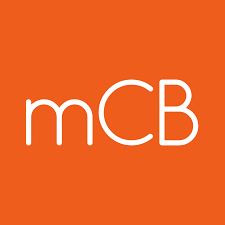
Eldercare Planning Checklist for 2025
A Guide for Supporting Aging Parents
- Financial planning for eldercare requires reviewing government programs, exploring tax credits for seniors and caregivers, budgeting for increasing care needs, and considering property tax deferrals—all while consulting regularly with financial professionals about changing policies.
- Legal and healthcare planning involves updating estate documents (especially for digital assets), exploring expanded aging-in-place initiatives, investigating both public and private support services, and staying informed about newly funded provincial programs.
- Creating a comprehensive care strategy means exploring modern senior living options (from smart home technology to innovative care communities), prioritizing caregiver support through respite services, and maintaining flexibility to adapt to changing circumstances.
Reading Time – 5 minutes
Eldercare planning 2025 is becoming increasingly crucial. Healthcare and support services are rapidly evolving. Also, new benefits and programs for seniors emerge regularly. Families need a comprehensive approach to care planning. Although navigating these options can feel overwhelming, this guide will help you focus on the most important areas.
Eldercare Planning 2025: Financial Considerations
Financial planning remains a cornerstone of elder care preparation.
Here is a list of considerations for 2025:
- If your parent is expected to have increasing care needs during the year, consider care budgeting to plan for increasing costs of private home care or other services. A financial planner can help you model out expected costs (we always recommend planning to age 100) and reconcile the expense budget with your assets and cash inflows.
- Look into whether there are any changes to core government programs like Old Age Security, Guaranteed Income Supplement, and Canada Pension Plan.
- Talk to your tax accountant about federal and provincial tax credits designedfor seniors and their caregivers, including the Home Accessibility Tax Credit. If your parent lives in a seniors residence or receives home care services in their current home, a portion of these expenses may be tax-deductible.
Some provinces have property tax deferrals for low-income seniors, which can free up crucial funds for care expenses. As budget proposals emerge, consulting with a financial professional can help you understand how new policies might affect your parents’ benefits and coverage.
Learn more about senior tax benefits and credits
Future-Focused Legal Planning: 2025 and Beyond
There’s never a bad time to get one’s legal affairs in order and review estate planning documents. Digital assets have become an increasingly important consideration, with new laws addressing how online accounts, files, and intellectual property should be protected and transferred. The addition of new family members, divorces and marriages in the family are all reasons to review your estate planning documents. Is the person named as your power of attorney or as executor in your will still an appropriate choice? Working with an elder law attorney can help ensure all documents reflect current family circumstances and comply with updated provincial laws.
Healthcare Evolution: Navigating New Care Options
When considering eldercare planning in 2025, know that healthcare options are expanding significantly. Specifically, there’s growing support for aging-in-place initiatives. Provincial programs focusing on geriatric and out-patient care, dementia support, fall prevention, and medical equipment accessibility are becoming more comprehensive. Regular conversations with healthcare providers can help you stay informed about newly funded programs that might benefit your parents. In addition to government supported programs, there are many options in the private sector for services and products that can help a senior age-in-place at home.
Read our guide on choosing the right care provider for seniors
Modern Senior Living: From Smart Homes to Care Communities
The housing landscape for seniors is becoming more diverse and innovative. Modern care homes are no longer grim and depressing. Advances in smart home technology and remote monitoring systems are making it increasingly feasible for seniors to age-in-place at home while maintaining independence and safety. You may want to tour some care residences in your area to educate yourself on what’s out there and to get a comparison of the various options. Look for things like suite size, costs, amenities and in-house care and other services.
Supporting the Supporters: Essential Resources for Family Caregivers
Caregiver support has gained recognition as a crucial component of elder care as well as a major contributor to mental health. Provincial respite care programs offer essential breaks for family caregivers. Workplace policies are evolving to accommodate the demands of eldercare through paid leave and flexible arrangements. Some provinces have introduced caregiver tax credits or benefits to help offset the financial burden.
Additionally, caregiver support groups, both in-person and online, provide valuable opportunities to share experiences and strategies with others facing similar challenges. Enquire with your employer what initiatives are available to support your workplace. Make it a goal for 2025 to improve the caregiver support for the family caregivers in your family by incorporating some respite solutions.
Successful eldercare planning in 2025 requires flexibility and regular review. Torough planning can help prevent emergencies and reduce stress, but remember that no preparation can anticipate every challenge. Building a network of trusted experts and maintaining flexibility in your approach will serve you well. With careful consideration of these various aspects, and a willingness to adapt as circumstances change, you can help ensure your parents receive the support they need to maintain their quality of life as they age.
Other articles you may be interested in:

Comments 1
Pingback: Having Important Care Conversations This Spring | myCareBase